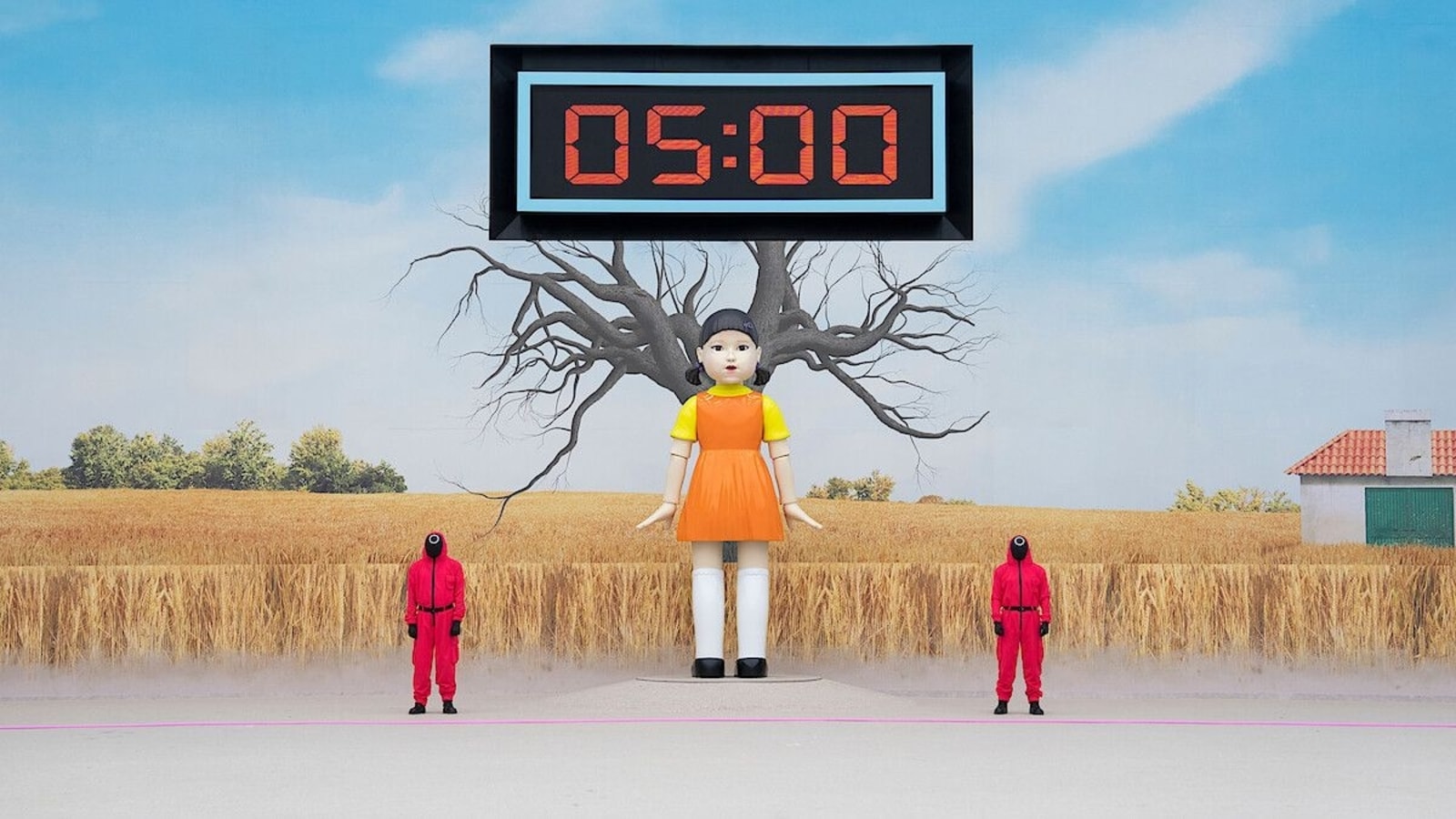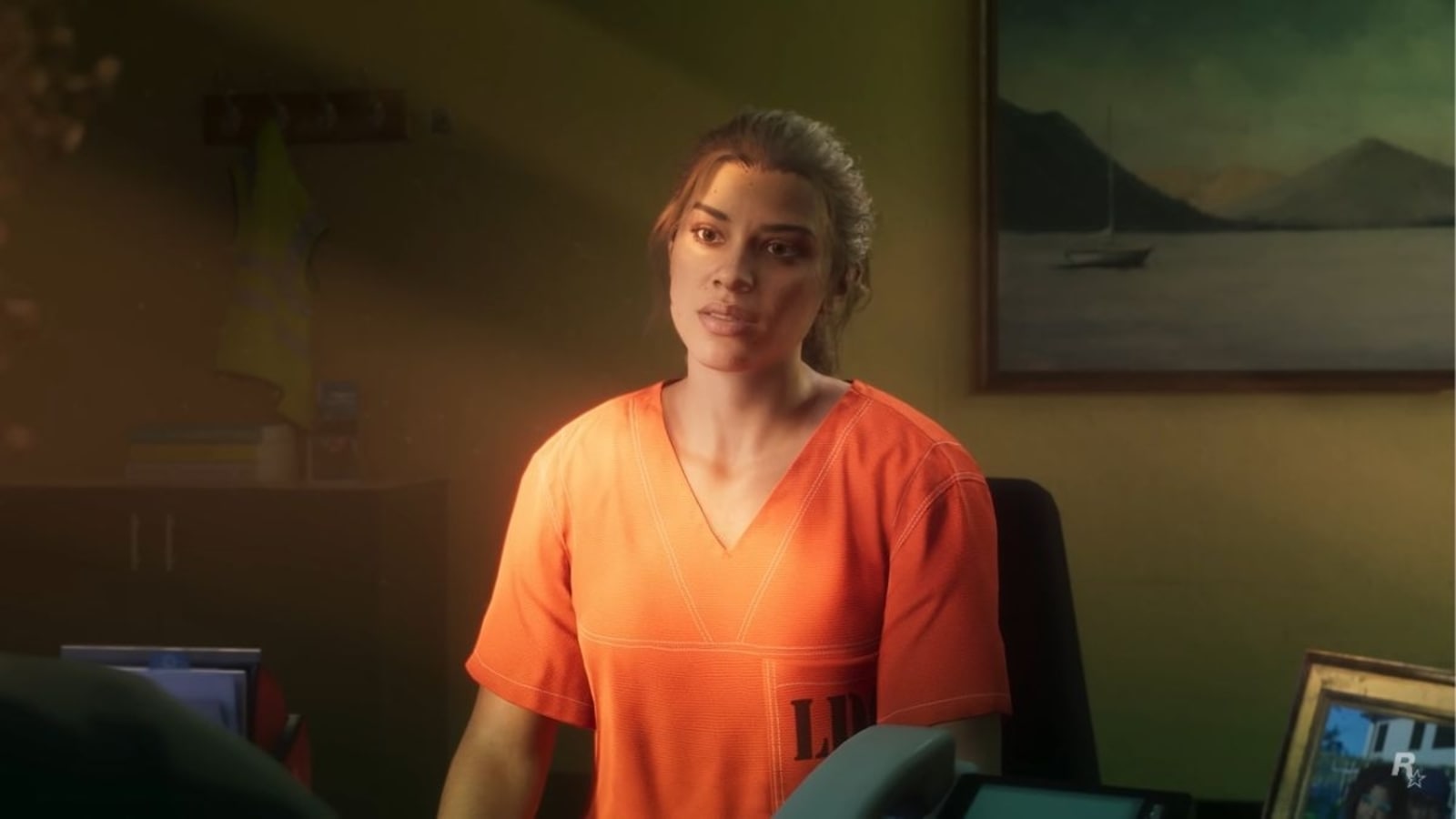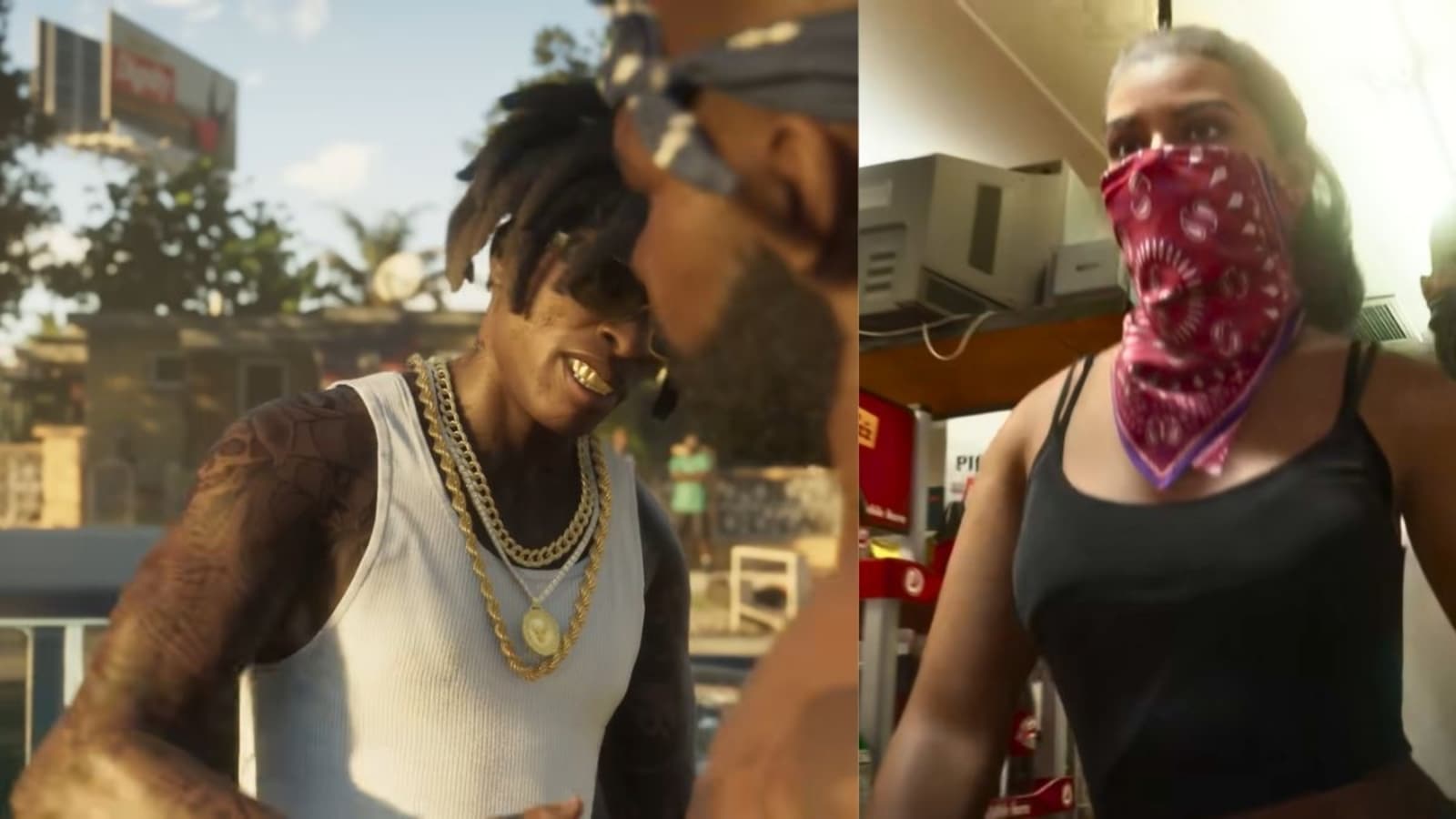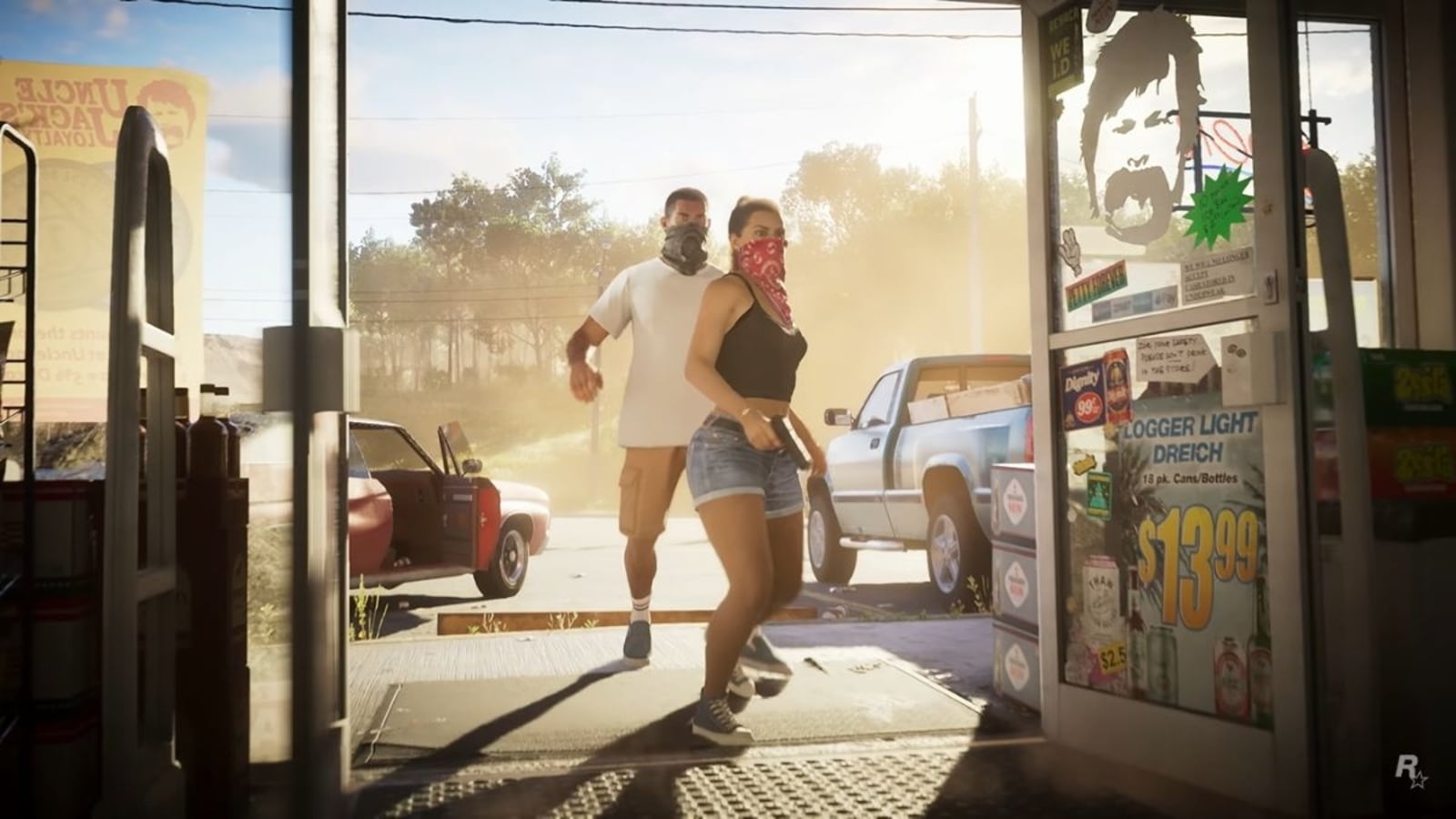I’m noticing you’re wearing some very fabulous black leather pants.
These are my power pants. This is like when I have something important to do that day. It’s like, these are the black leather pants.
Would you have worn something like this — I don’t know — 15 years ago?
Oh, no, even five years ago, or maybe five years ago, I would have worn these in the city, but not back on Long Island.
I was wearing a wig over my hair. So it was a long blonde wig. And I wore skirts. Something modest that covered my collarbone, elbows and knees. And then I would need to wear tights below that so that you wouldn’t see any exposed skin.
I think what I wanted was for them to not make the assumption of heteronormativity or religiosity when looking at me. I wanted them to have a doubt in their minds and so that they would know that if they really wanted me to be, like, straight or religious, that would be something they would need to ask me whether I was or wasn’t.
As opposed to assuming something?
Yeah.
On the first day of 10th grade in Borough Park Brooklyn, she slung her backpack down near me. Our classmates penciled equations onto graph paper, but she drew on her arm in neon gel pen, “Hannah.” I rolled out up my identical navy checked sleeve and put a ballpoint pen to my own pale skin. She smirked. I wanted to know everything about her.
She was from another city where there were no Orthodox Jewish high schools. “I don’t get this place,” she said.
“I will tell you everything you need to know,” I said.
We met up in Brooklyn at a concert. We watched Kineret, our community superstar, her long gown sparkling as she filled the room with song. Hannah was so close that I could feel the movements of her body in the air between us. I clenched my shoulder blades together tight, tighter.
Around us, dozens of pious voices sang with Kineret about the world to come. Not exactly the appropriate soundtrack for acting on my unholy desires. When the music ended, we watched the crowd disperse onto the streets, a stream of girls and women in modest garb.
“Want to sleepover?” I asked, trying to take the urgency out of my words.
“Sure! Can we get pizza?”
In the dim glow of the streetlights, I saw her grin.
We created our own concert later that night, a silent orchestra of skin on skin, her breath in my ear, and the pounding of our hearts against each other in the dark. We held each other afterward. I felt her face against mine, her fingers trailing down my back. I wanted to say, “I think about every single day.”
As the sunlight bled through my window blinds, I tried not to notice the slope of her pale shoulder, the way her dark hair spread over my pillow. “This is the last time,” I promised myself and God, as I slid my leg out from between hers.
When I got married to my first husband, I had strong feelings that I really should be with a woman and not with a man. But I wanted to do what God said was right. And so I had made mistakes, but I fought it. I prayed. I fasted. It was like, you know, I’d love to murder people, but I’m like over it, I’m mostly over it. I only think of it, like, once in a while.
It was that evil to you?
Yeah.
It was akin to murdering someone?
Exactly. And I thought, I can do it. Like, it’s OK. I can handle it. I’ll be with a man. But at least I’ll get to be me in this one way.
I’ll get to have a PhD in psychology. That’s, like, the thing for me. My body is going to be for God. Everything I do every day will be for God. But just like, it was like the one thing.
It was like my bargain with God. Let me just have the PhD in psychology. I just want to do this one thing.
I knew growing up in the Hasidic ultra-Orthodox community, becoming a psychologist would be a battle. And so I went and got rabbinic permission from my rabbi to go to graduate school and get a degree in psychology. But then my husband seemed to disagree with that.
And so he went to his rabbi. And his rabbi didn’t think that would be a very good idea. And so together, they decided I should get a master’s in social work instead.
How did you feel about going to school for a degree that wasn’t really the dream you’d had?
I was devastated. I was really, really devastated. It just made me feel completely trapped in a world that I didn’t really want.
Tell me about what you were learning in this social work program?
Social work school, it was like my first foray out into the real world outside of the ultra-Orthodox community. And I geared up for college like it was a spiritual battle. I had holy texts in my car. I had a buddy, a religious woman from my block, who was like traveling with me to college. We had a plan to study Bible works during every lunch break so that whatever we learned in college — we didn’t know what it would be — but whatever came at us in the spiritual minefield of social work school, we would be ready.
You could combat it.
We’ve got this. And this one day, my professor rolled one of those old VCRs into the classroom on the little metal stand. And the entire film was all about women dancing with other women and kissing other women and then men who are wearing nail polish.
And I started to get flashbacks of girls I had been with in high school. Seeing the external manifestation of the demon I had been trying to fight for my entire life made me really worried that my brain would turn back on to having those thoughts and feelings and that I wouldn’t be able to shut it off. And then I started to worry — I was breastfeeding my daughter at the time — and I started to worry, what if these things that I see on the screen go into my milk and then they infect my daughter? And so I raised my hand and asked to meet the professor outside of class and just basically asked to be excused.
Was that fear of whatever influence sort of infiltrating your body, was that something faith-based or was that a personal fear of yours?
It was faith-based. We were raised to believe that everything we thought had consequences, everything we ate had consequences, and that everything we thought while pregnant had consequences for our fetuses we’re carrying.
How did you understand your sexuality at that point?
I was trying really hard to be straight. And I thought I had mostly conquered what was an evil temptation.
And you felt like, OK, I’m — you were trying so hard. It sounds like you had such a sort of vice grip on these desires. But then this video kind of blasted that open again. Is that true?
It was threatening to blast that open again. I had a 1 and 1/2 year old and a newborn. And I couldn’t afford to have all that blasted open.
What was at stake for you if those desires did come out again?
The risks for me were this. If I were to allow that door to bust open and if I were to allow myself to have all these thoughts about women, I could lose custody of my children. So the stakes were pretty damn high.
I got this little cottage set back from the Main Street on Long Island and decorated three separate play therapy rooms with expressive arts therapy and sand play therapy. And I brought in this wonderful, wonderful team of sensitive, warm child therapists and adult therapists. It was beautiful just to be able to do the work and to go in every day and have young children and teenagers come in and feel safe.
Did your clients come to you specifically because you were in the community with them?
And here’s where it gets dicey.
Some explicitly did ask before signing up for therapy with me, are you Orthodox? And at that time I did identify as Orthodox. And so I said yes. And for some, it was more implied by the way I dressed and the words that I knew how to speak.
So they would be able to use words like “Shabbos,” which is observing the Sabbath from sundown on Friday to sundown on Saturday. But they can just weave it into a sentence and I would know exactly what it meant. And for others, it was that I was seeing their children. And they wanted their children to have adults in their lives who are positive role models, who were like adhering to the same value system that the parents are trying to teach at home.
Did you feel like a positive role model?
I did until I didn’t. You know, I started to struggle once I divorced my second husband. And this was just because I was gay.
And I couldn’t do it anymore. And so I chose to get divorced and moved to Manhattan and started to date women. And at that point —
But you kept your practice on Long Island?
I kept my practice on Long Island and built a second one in Manhattan. I don’t know if I felt like a positive role model, you know? I felt like maybe a good therapist. But I was starting to worry about that other part.
Was your dating life now that you’re living in Manhattan and you’re divorced, was your dating life, seeing women, was that a secret?
From your face looks like a complicated answer.
I really didn’t want it to have to be a secret. But at the same time, it wasn’t something I advertised. And what I struggled with was this. I felt that it was my job as the therapist to create this sanctuary for my clients and for them to be able to walk into my room and to know, it’s safe here.
I don’t need to worry about you. That was sometimes the only place they had where they didn’t have to take care of anybody else or worry about anybody else. And that was sacred to me. And so the struggle was, I know I’m changing some things. And I know my clients. So I know that the changes I’m making will give them some pause.
But now you don’t have that practice on Long Island anymore, correct? It’s just the Manhattan one? Tell me about what happened.
OK. I’ve barely even spoken about this since it happened. So you’ll get to hear it very raw. As I’m going through this whole transition, I started to date someone. And I really, really liked her. And she’s sort of a masculine-presenting lesbian.
And I was grappling with this staying closeted versus coming out. And so when she wanted to post some pictures of us on her personal social media pages, even though I knew it was a little risky, I was like so tired of being closeted that I was like, you go, do that. Don’t tag me. Keep your page private. But let’s be proud in this little area of your private social media page.
Unfortunately, those pictures got leaked. One person saw them and then screenshot them. And communities like that, they have chats, WhatsApp chats in Orthodox communities.
Mhm.
So my picture went viral.
On the Orthodox chats?
Yes. So when I first heard this was happening, I spoke with my team. These were people I employed. And they had already known that I was changing.
And I said to them, if this becomes an issue for you guys, I will step down from my position at the head of the practice. You know, if this blows up, I’m going to just duck out of the way and take all the fire so you guys can just get away scot-free and continue to build your careers.
Ugh.
Yeah.
I mean, I think — I want you to keep — I think that’s a generous thing to say to your staff. It’s good that you cared for them so much. But also, even the language, “duck away,” “I’ll take the fire —”
Yeah.
— I mean, it’s pretty violent language that you’re using. You know, it’s clear that you were preparing for a potential onslaught.
I was. And when the picture got leaked, I started to get these phone calls at first from some clients. And they never said we have a problem with you being gay. But what they said was, let’s put all our sessions on hold for now, you know? Or they would say things like, we just wish you had been authentic with us about who you are.
And they weren’t wrong to feel like a little bit deceived. You know, I’m a feminine-presenting lesbian. So I have that privilege where I don’t have to — I didn’t have to change my appearance to feel true to who I was. They also met me being married to a man, wearing a wig. And I look kind of the same, just without the wig. And, you know, I had given every impression that I was kind of still similar to the person they had known me to be when they met me.
Did you get any calls from clients themselves and not just the parents of clients?
Yes, but I had been in the community for several years. So there are some kids I had watched some grow up. Like, I had treated them from second grade to seventh grade or something like that.
I knew when their teeth fell out. I helped them go on their first overnight sleepovers. And so there was one teenager, she reached out to me and said, the person I would normally talk to about this would be you and now I can’t even talk to you. And I just don’t even know if I’ll ever trust anybody again.
Oh my god. How did you respond to that?
I cried. That one really broke me. I didn’t say that to the child. I validated her feelings. I apologized to her. I told her I understood and that I would talk with her mom about how she could move forward. Because, again, she was a child. I didn’t want to violate the parents’ wishes and engage too much in this out-of-session communication.
Did you eventually follow up on your promise to your staff and leave that practice?
Yes. I had this one associate on my staff whom I had been working with for the longest. And she called me. And she said, you know, it’s time.
And I remember driving around Columbus Circle. And I just couldn’t remember how to get out of the circle. I was like driving around and around and around, like trying to stay cool on the phone. And pretty much overnight, had to shut that practice down.
And, actually, I do want to mention, there were some clients who called me and had different conversations with me. And they said, you’ve been our therapist for all these years. We know who you are.
And we hope you’re happy. And where is your new office? Because we’re going to take the train. And we’ll be there.
It sounds like you were being so strong for the people around you, but, I mean, this is devastating. How were you coping?
The person I was dating at the time is now my wife. And she remembers just holding me through those nights. And I would just sometimes wake up shaking and crying.
It was just all I wanted to do is be a safe person for those children and those teens. And then when I turned into the person who hurt them and who caused them pain, I really, really needed her. And I was glad that she was there.
You married the woman in the photo?
Yes, she is the most loving, sweetest person I could ever have imagined ending up with. And she and I actually have another child together. He’s 2 and 1/2 now. And he’s just, like, the sweetest.
And your two kids have a baby brother?
Yes, they do. They’re great with him.
How old are they now?
They’re juniors in high school.
Whoa.
So in our household right now, we are — we’re doing college tours.
Are you still in touch with anyone in the Orthodox community where you grew up?
No.
Not at all?
No, I’ll occasionally have little bits of communication with my siblings.
And it’s not that they cut me off or I cut them off. It’s just that they live in a world where having a queer sister would be a problem for them.
Do you ever feel homesick for that community at all?
Yeah, I do. They’re only like about 11 miles away from where we are right now. And I know that because I’ve gone on to Google Maps and been like, how far is my sister from where I am and how crazy is that we’re living such completely different lives?
And there are many times when I feel like I just want to call someone, you know, and just say this great thing happened today. And I don’t have that many of those people. And sometimes I’m just like, you know, gefilte fish is this Jewish food. It’s like imagine taking white fish, grinding it, mixing it with flour, and baking it as a loaf. It’s not the best.
But I’ll be like, I just want gefilte fish, you know? Like, once in a while, I’ll buy a jar of it. My family is like, just can you just put that in the back of the fridge? But I’ll eat a piece just to feel like that connection to home.
Sara, thank you so much for this conversation.
Thank you for being open to hearing all about the good, the bad, the difficult. I appreciate it.























